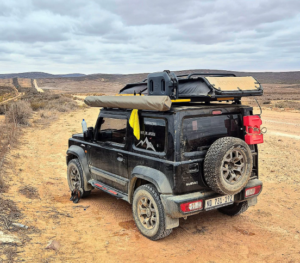The president of the Muslim Youth Movement Thandile Kona believes that although we mourn the passing of ANC stalwart Ebrahim Ismail Ebrahim, we should celebrate his life and reflect upon it, writes an Al Qalam Reporter
Tributes are still pouring in for ANC “revolutionary” Ebrahim Ismail Ebrahim (84) who passed away this week after a long bout of cancer. He was a committed cadre who served 15 years jail at Robben Island for sabotage and who Nelson Mandela once described as “one of the most outstanding pillars of the movement”.
Top brass of the ANC paid tribute to him at a “special” ceremony where officials draped his coffin with the South African flag in his honour. High ranking officials of the Government eulogised him for his sacrifices in the struggle for liberation. His janaza was performed at Westpark “Heroes Acre” Cemetery with about 70 people present.
Ebrahim was among the first comrades recruited into the ANC’s Umkhonto we Sizwe military wing (MK) in Natal in 1961, joining MK’s Natal High Command. His unit carried out successful acts of sabotage against government installations – but no civilians were targeted.
The then Apartheid government arrested him and he was later charged under the Sabotage Act in 1961 and sentenced to 15 years’ imprisonment on Robben Island.
After his release from Robben Island in 1991, Nelson Mandela said: “Ebrahim emerged as one of the most outstanding pillars of the movement, who was not only committed and loyal, but who had the ability to explain the policies of the organisation.”
In paying tribute, Thandile Kona, President of the Muslim Youth Movement of South Africa (MYM) said it was saddened by the passing of Ebrahim Ismail Ebrahim, “a struggle veteran, a seasoned diplomat and a lifelong activist.”
Imprisonment
Kona said as a young activist, Ebrahim involved himself in the struggle against the evil system of apartheid and for that he paid dearly, including with imprisonment on Robben Island and persecution.
“As a deputy minister of the then foreign affairs, Ebrahim played a pivotal role in shaping South African foreign policy and was at the forefront of the project of state building immediately after the 1994 first democratic elections.
His connection to the MYM was cemented when in September 2013 he addressed – as a guest of honour – the MYM’s 40th anniversary gala dinner in Durban. On that day, he stressed the importance of social activism in the project of nation building.
“A gentle man with a quiet demeanour, his immense contribution to and sacrifices for the shaping of present day democratic South Africa should not go unnoticed. Although we mourn his death, we should celebrate his life and reflect upon it.
“We pray to Allah that He comforts his family, friends and comrades. May Allah grant Ebrahim a place in paradise reserved for those who struggled in His path.”
In his speech at the MYM Gala dinner marking the 40th anniversary of the MYM, Ebrahim praised the efforts of the MYM in the “positive role it played in articulating the social, educational, political, and economic expressions of Islam during the most repressive era of the apartheid government”.
He said: “The establishment of As Salaam Educational Institute, the South African National Zakah Fund, Association of Muslim Accountants and Lawyers, Al-Qalam Newspaper and the Islamic Medical Association are all projects of the Muslim Youth Movement and remains a source of inspiration to this day for many young Muslim activists. The Muslim Youth Movement also recognized the marginalization of women and black members in the community and accordingly sought to include them in the activities of the organization.”
He told the gathering that the challenges “facing the Muslim Youth in South Africa today” is reflective of the challenges facing the wider community at large.
However, he expressed “a sense of disappointment with the Muslim Youth in particular and the community at large generally with their silence on the rights of the Saharawi people to self determination and independence.
“Whereas, we are vocal and rightly so, on the rights of the Palestinians, we are not as vocal when it comes to the Polisario Front. The issue of the Saharawi people is a matter of decolonization and they have an equal right to self determination and independence. My challenge to you this evening is to take up the cause of the Saharawi people as much as you take up the cause of the Palestinians”.
He said, at the time, that the branches of the ANC had taken up the issues of both Saharawi people (native to Western part of Sahara Desert fighting for independence from Morocco) and the Palestinians at the policy conference.


